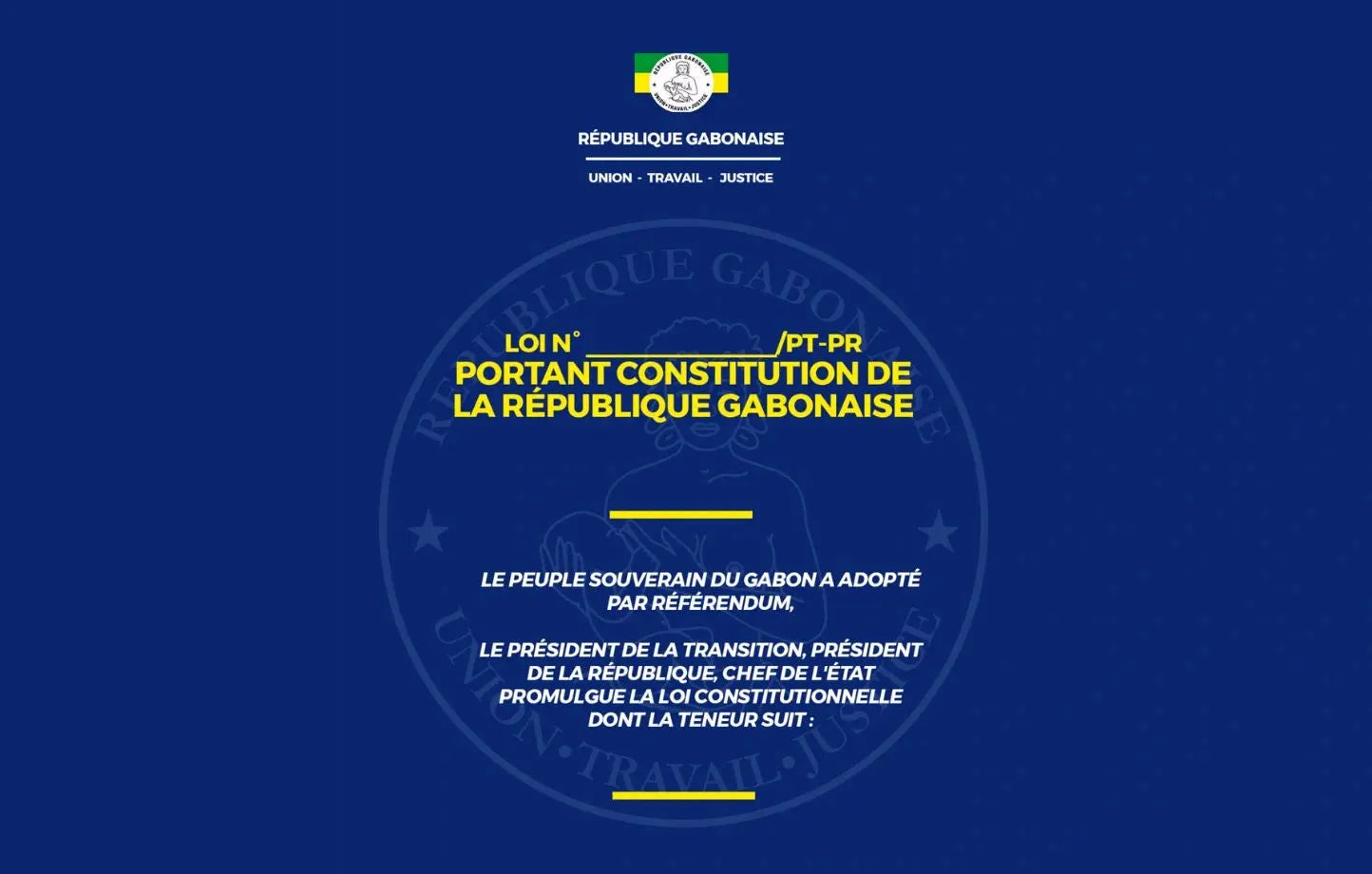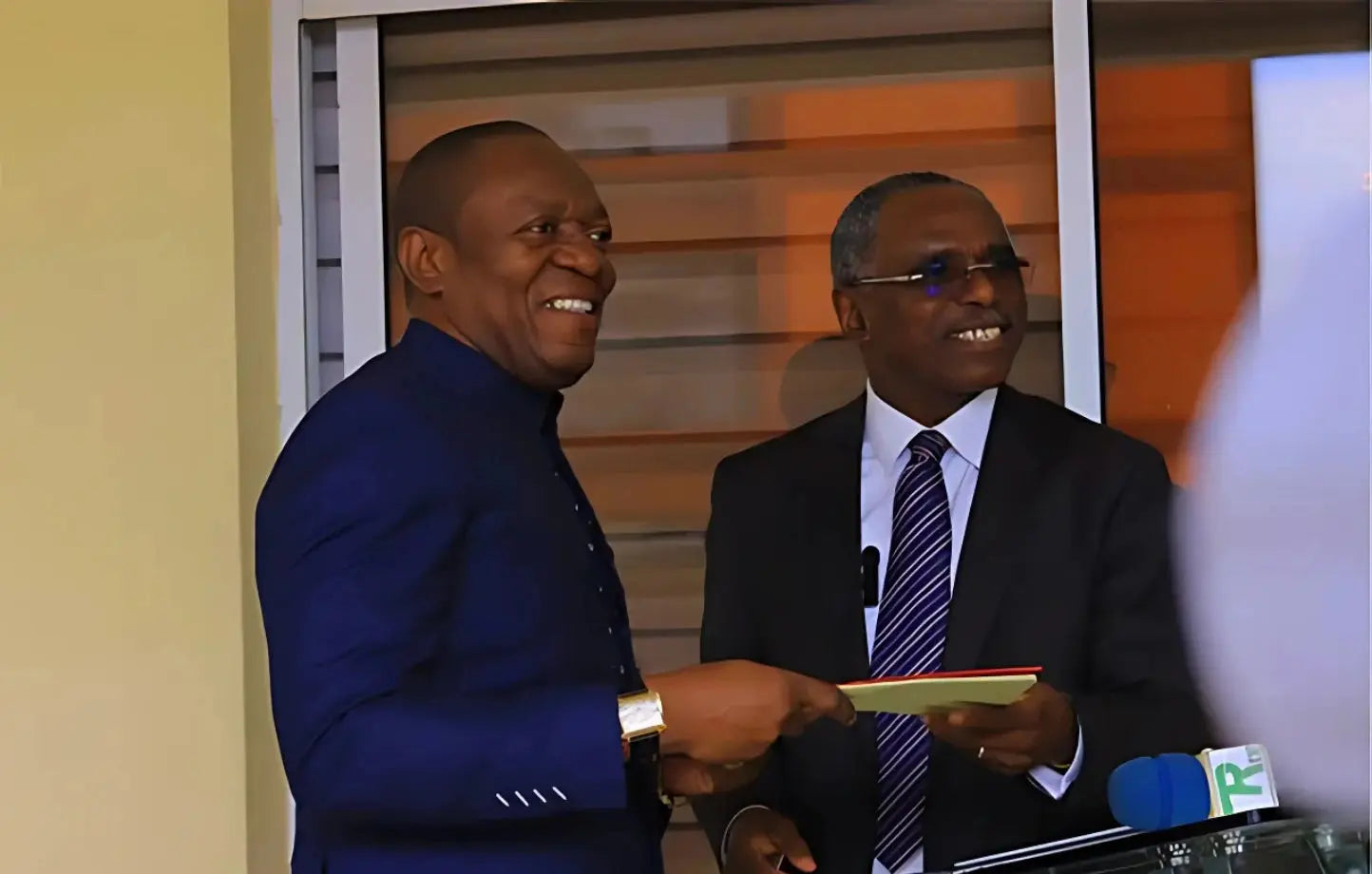
"Oligui's Constitution does not inaugurate a Second Gabonese Republic" affirm international experts Grimm and Smith
Interview with two European constitutionalists on the new Gabonese constitution
The Gabon2025 Collective, through its network, had the chance to interview Dieter Grimm, former judge of the German Constitutional Court, and Eivind Smith, Norwegian professor of public law, to obtain their opinion on the draft of the new Gabonese constitution submitted to referendum.
Gabon2025: Does the new Gabonese constitution mark a break with the past justifying the name "Second Republic"?
Dieter Grimm: "A 'Second Republic' presupposes a radical overhaul of the political system. While this constitution introduces notable reforms, such as the recognition of the right to a healthy environment, it does not fundamentally upset the balance of powers. The president retains strengthened prerogatives, and the countervailing powers remain limited. This is more reminiscent of an evolution than a revolution. We are not in the case of post-apartheid South Africa."
Eivind Smith: "Indeed, the notion of rupture is not obvious here. Let's compare with other countries that have changed regimes: in Chile, for example, a broad citizen consultation is underway to completely transform the institutional framework inherited from the dictatorship. In Gabon, the changes, although significant, do not represent a profound transformation of political institutions."
Gabon2025: What do you think are the positive points of this new constitution?
Grimm : "The inclusion of modern rights, such as the protection of personal data, is a strong point. Gabon is thus following an international trend to integrate these issues into its legal framework. This shows a desire for modernization, comparable to what we see in India with the integration of environmental rights into its constitution."
Smith: “I agree. These additions are relevant, but the real challenge lies in their implementation. Take Venezuela: a very progressive constitution on paper, but its implementation has been hampered by institutional weaknesses. For Gabon to truly guarantee these rights, it must strengthen its institutions, including the judiciary and oversight bodies.”
Gabon2025: Some people criticize the speed of the development process. What do you think?
Smith: “A rushed process can undermine the legitimacy of the text. Let’s look at what happened in Egypt after 2011: a constitution that was drafted in haste, without consensus, was quickly challenged. It is essential to take the time necessary to consult the population and gain broad support. This was clearly not the case in Gabon.”
Grimm: "I share this analysis. Successful constitutional processes, such as that of post-apartheid South Africa, are built over time and through in-depth dialogue. If the population does not feel sufficiently involved, this can lead to mistrust of the text and of the power in place."
Gabon2025: How do you perceive the place of the executive in this new constitution?
Smith: “The executive branch retains broad powers, including in a state of emergency. History has shown that these powers can be abused to reinforce authoritarianism. Look at Turkey after the 2016 coup attempt, where the state of emergency was extended to consolidate presidential power. Without strong safeguards, there is a real danger.”
Grimm: "This is a legitimate concern. In a balanced democracy, each branch of government must be able to check the others. In the United States, for example, the system of 'checks and balances' prevents excessive concentration of power. If in Gabon the executive is strengthened without institutional compensation, this could weaken this crucial balance."
Gabon2025: Can we really talk about a “Second Republic”?
Grimm: "In my opinion, no. Although reforms have been made, they do not constitute a sufficient break to justify such a term. The political system remains largely unchanged."
Smith: "I share this view. The concept of the 'Second Republic' implies a radical transformation of the institutions and values of the State. Here, we observe significant adjustments, but not a total overhaul."
Gabon2025: What do you think would be the next steps for Gabon after the adoption of this constitution?
Grimm : "Strengthening independent institutions, such as a strong constitutional court, would be essential. Taking inspiration from the German Constitutional Court could be a good idea to ensure the protection of fundamental rights."
Smith: “Continued dialogue with civil society would also be crucial to assess the implementation of the constitution and adapt it if necessary. Countries like Costa Rica have successfully engaged their citizens in political processes, which has strengthened their democracy. Gabon could draw inspiration from this to establish the legitimacy of its constitutional framework.”


